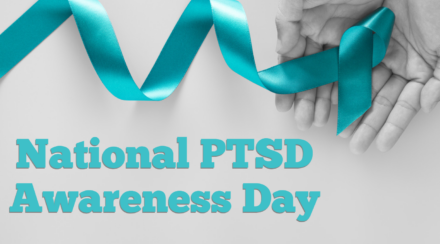Menu

Everything Employers Need to Know About Schizophrenia in the Workplace
Schizophrenia is a chronic mental health disorder that affects approximately 24 million people worldwide. There is an array of preconceptions around this disorder, particularly due to the nature in which it is presented in entertainment media, but a lot of these preconceived notions do not accurately reflect the experience of someone who has been diagnosed with schizophrenia.
It is therefore important for employers and HR to understand the reality of schizophrenia, and how with the right support and reasonable adjustments, those with this disorder can be capable, productive, and dedicated workers.
Schizophrenia is a disorder that is primarily marked by psychosis, which refers to a set of symptoms characterized by a loss of touch with reality due to a disruption in the way that the brain processes information. This can manifest thought hallucinations, delusions, reduced motivation, motor impairment, cognitive impairment, and difficulty with relationships. There is no definitive cause for the disorder, although it has been found that those with family members who suffer from schizophrenia have a higher chance of being diagnosed.
Despite schizophrenia being widely heard of, it is actually one of the more uncommon disorders – it is much more likely for a person to have a panic disorder, bipolar, or depression. Due to portrayals in popular culture, some employers may be hesitant to hire individuals affected, but the reality of this disorder is very different, so let’s challenge some of these notions:
- Violent Tendencies – multiple studies have shown that most people with this condition don’t exhibit violent behavior. In fact, one study found that 19 out of 20 people with schizophrenia had no incidence of violence over a two-year period.
- Episodes – schizophrenic episodes are unique to the individual and vary significantly from person to person. They will not always include delusions or hallucinations, but it’s important to be aware of the different ways that symptoms can manifest during an episode.
- Treatment – while medication can be essential for managing the disorder, it isn’t the only method of treatment. People with schizophrenia benefit from multiple support strategies, such as social support, engaging in meaningful work/activities, and having a routine – these can all help reduce the impact of the condition and improve wellbeing.
- Work – even though schizophrenia can be a disabling condition, it doesn’t mean that individuals affected by it can’t work, they just need to have the right support and accommodations in place. As mentioned above, meaningful work can be a crucial part of stabilizing symptoms.
It is estimated that about 10-15% of people with schizophrenia are in the workforce, but 70% would actively like to be working. The aforementioned misconceptions, and the lack of proper support and adjustments, can act as barriers for those with this disorder to find a job. If employers are able to offer reasonable adjustments – opportunities to work remotely, regular breaks, quiet workspaces, flexibility – this can lend towards the successful onboarding of an employee with schizophrenia. Along with this, there are a few essentials that employers and HR leaders need to know:
- Hiring – schizophrenia is protected under the Equality Act in the UK and the Americans with Disabilities Act in the US, so just like with any potential candidate, hiring managers will need to assess whether their qualifications, experience, and attitude are right for the job and will be able to do the job with the right accommodations. Individuals with schizophrenia can sometimes have difficulty engaging in teamwork, goal setting, and focusing, and these factors tend to act as barriers for those with the disorder from getting and maintaining a job. But having the right accommodations can help overcome this. For example, when someone with schizophrenia has an episode, they will not be functional, but to help remedy this in the future, employers can work with their treatment providers to help determine and mitigate potential triggers of an episode in the workplace.
- Talking About Schizophrenia – hiring someone with schizophrenia must remain confidential unless the employee opts to share their diagnosis with others. If they do, it can be useful to provide additional training/education about the condition to avoid the risk of employees believing the many misconceptions discussed above. This training could include highlighting the accommodations in place to help ensure workflow isn’t disrupted, and how to recognize a schizophrenic episode and what to do in that situation.
- Mental Health Support – many employers now offer mental health support as part of their benefit packages, most notable in the form on an employee assistance program. These can be a great way of ensuring that an employee with schizophrenia has access to therapy, and can help employers identify triggers for episodes which they can then work towards mitigating.
If you would like to discuss how we can help support and train you in the onboarding and inclusion of employees with schizophrenia, or any other mental health disorders, please get in touch with us.



